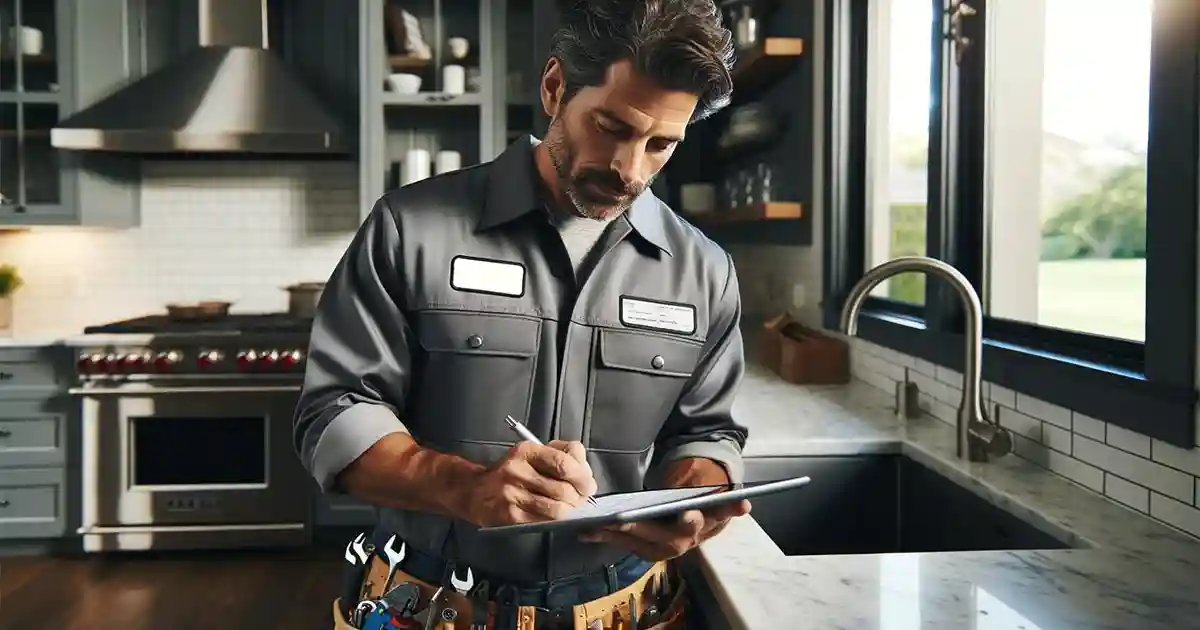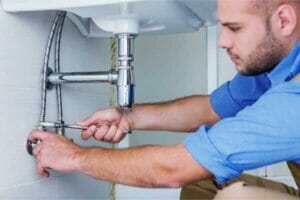
In the fast-paced world headed into 2024, efficient invoicing is a key aspect of running a successful plumbing business. It's not just about getting paid; it's about professionalism, accuracy, and maintaining a healthy cash flow. This comprehensive guide delves into 10 crucial invoicing tips every plumber should follow to stay ahead in the industry.
Table of Contents
- Understanding Your Invoicing Software
- Itemized Billing
- Setting Clear Payment Terms
- Digital Invoicing
- Timely Invoicing
- Following Up on Invoices
- Offering Multiple Payment Options
- Keeping Records Organized
- Training Staff on Invoicing Procedures
- Reviewing and Updating Invoicing Practices
- Legal Compliance and Tax Considerations
- Conclusion
1) Understanding Your Invoicing Software
Choosing the Right Software
The cornerstone of effective plumbing invoicing is selecting the right software. It's essential to find a solution that's not only user-friendly but also offers customization to suit your specific business needs. From features like automatic billing to support for various payment methods, the right software simplifies your invoicing process, saving you time and reducing errors.
Customizing Invoices for Branding
Tailoring your invoices to reflect your brand identity is more than a cosmetic change. It's about creating a consistent, professional image that resonates with your clients. Incorporating your logo, brand colors, and a personalized message can transform your invoice from a mere bill to a reflection of your business's quality and professionalism.
Visit our Plumbing Software to help manage your business
2) Itemized Billing
Clarity in Service Descriptions
Each service you provide should be clearly and precisely described on the invoice. This clarity not only builds trust by keeping clients informed but also helps in avoiding any confusion or disputes regarding what has been charged.
Including Material Costs
Along with services, it's crucial to itemize the materials used. Providing a detailed breakdown of material costs promotes transparency and helps clients understand the total cost, thereby minimizing the risk of disputes and enhancing customer satisfaction.

3) Setting Clear Payment Terms
Payment Deadlines
Clear communication of payment terms, including deadlines, is vital. Establishing and enforcing these terms sets clear expectations for your clients and aids in ensuring that payments are received in a timely manner.
Late Payment Penalties
To encourage on-time payments, it's advisable to include penalties for late payments in your invoicing policy. This not only underscores the importance of meeting payment deadlines but also helps in safeguarding your cash flow against delays.
4) Digital Invoicing
Benefits of Going Paperless
The shift towards digital plumber invoicing reflects a larger trend towards efficiency and environmental responsibility. Many field service software solutions offer digital invoices which are not only faster and cheaper to process than paper ones but also easier to track and store, making them an ideal choice for modern businesses.
Using Mobile Apps for Convenience
Mobile invoicing apps allow you to manage your invoicing on the go, offering unparalleled convenience and flexibility. This capability is particularly beneficial for plumbers who are often on-site and need to generate invoices immediately after job completion.
Just starting? Try our free Plumbing Invoice Template
5) Timely Invoicing
Importance of Prompt Billing
Invoicing promptly after the completion of a job is critical. Delayed invoicing can lead to delayed payments, negatively impacting your cash. Timely invoicing demonstrates professionalism and helps in maintaining a steady income stream.
Impact on Cash Flow
The timing of your invoicing directly affects your flow of cash. Efficient, prompt invoicing ensures that payments are received sooner, thus maintaining a healthy cash balance which is essential for the smooth operation of your business.
6) Following Up on Invoices
Effective Communication Strategies
Effective communication is key when following up on unpaid invoices. Developing a systematic approach to sending reminders can significantly improve your payment collection rates, keeping your cash steadily flowing.
Dealing with Late Payments
Despite your best efforts, late payments can still occur. It's important to have a strategy in place for these situations, which might include setting up payment plans or considering legal action in extreme cases.
7) Offering Multiple Payment Options
Easing the Payment Process
Providing a variety of payment options simplifies the payment process for your clients. From traditional methods like checks to digital options like online payments and credit cards, offering flexibility can lead to quicker and more consistent payments.
Incorporating Digital Payments
Embracing digital and mobile payment methods caters to a tech-savvy clientele and reflects your business's modern approach. These methods often offer enhanced security and convenience, making them increasingly popular among consumers.

8) Keeping Records Organized
Importance of Record-Keeping
Efficient record-keeping is not just a good business practice; it's a necessity. It helps in tracking your invoices, payments, and overall financial health. Accurate records are also crucial for legal and tax purposes.
Using Cloud Storage
Cloud storage offers a secure, accessible way to manage your invoicing records. With the ability to access your data from anywhere, it ensures that your invoicing process remains seamless and integrated, regardless of your location.
9) Training Staff on Invoicing Procedures
Consistency in Invoicing
Ensuring that all staff members are well-versed in your invoicing procedures is crucial for maintaining consistency and accuracy in your billing process. This uniformity not only streamlines the process but also prevents errors and misunderstandings.
Regular Training Sessions
Regular training sessions for your staff help in keeping everyone updated on any changes in invoicing practices and technologies, thereby ensuring that your business remains current and efficient.
10) Reviewing and Updating Invoicing Practices
Adapting to Industry Changes
The plumbing industry, like any other, is subject to change. Regularly reviewing and updating your invoicing practices in response to new trends, technologies, and customer preferences is essential for staying competitive and efficient.
Annual Review of Practices
Conducting an annual review of your plumber invoicing practices helps in identifying areas for improvement. This process ensures that your invoicing remains effective, efficient, and aligned with your business goals.
Legal Compliance and Tax Considerations
Understanding Legal Requirements
Staying informed about the legal aspects of plumber invoicing, including regulations and tax implications, is crucial. Ensuring compliance not only avoids legal complications but also reinforces the credibility of your business.
Preparing for Tax Season
Effective invoicing practices greatly simplify tax preparation. Accurate, organized invoices make it easier to report income and expenses, ensuring that tax season is smooth and stress-free.
Conclusion
By following these 10 essential plumber invoicing tips, you can streamline their billing process, ensure timely payments, and maintain a professional image. Implementing these practices will enhance business operations, contribute to growth, and ensure success in the dynamic landscape of 2024.
